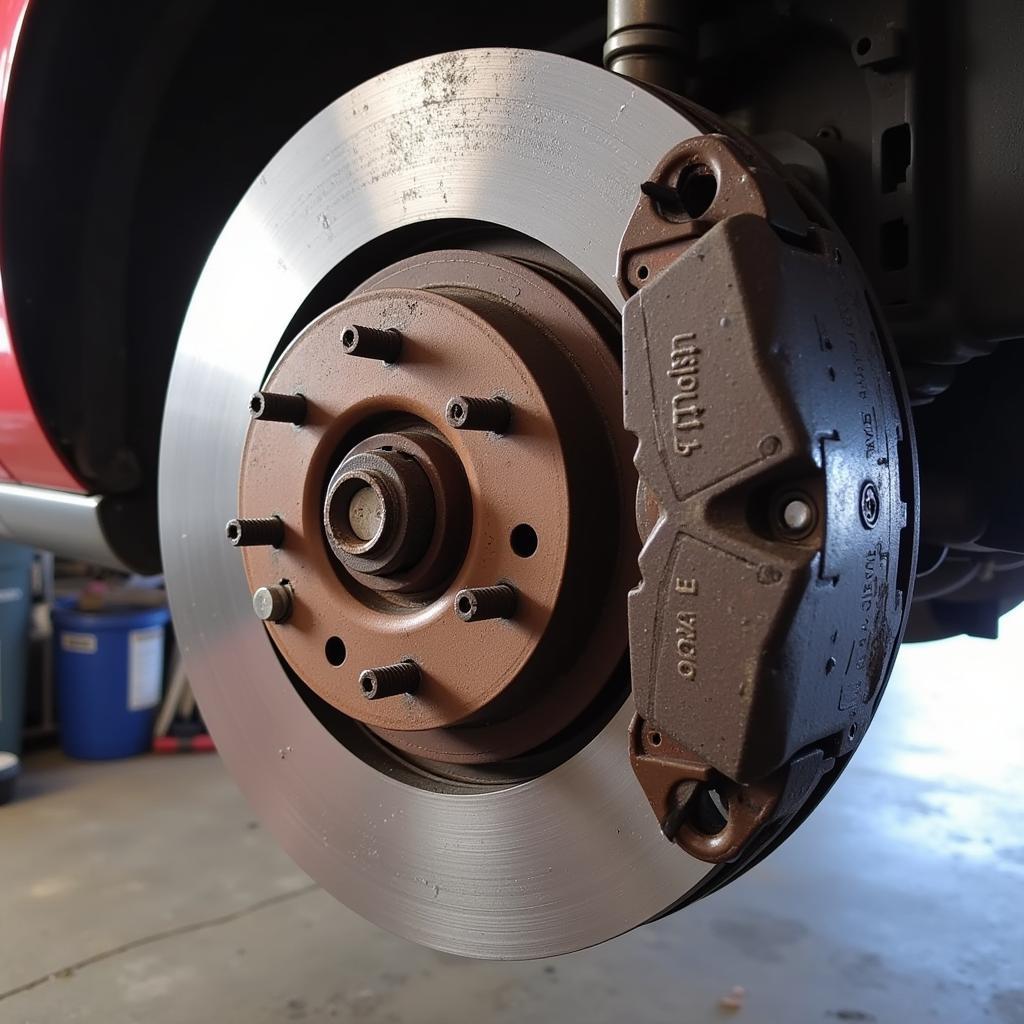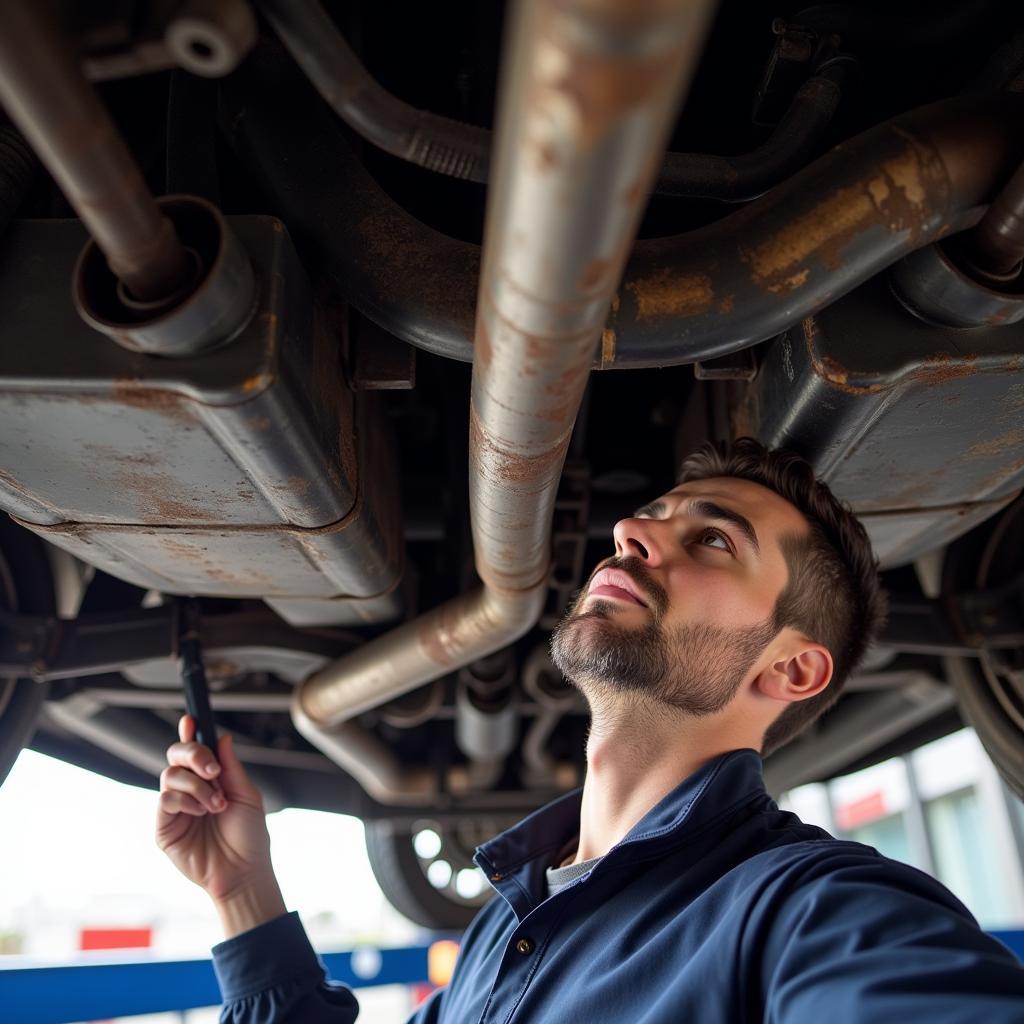Reaching 300000 miles on your car is a testament to its durability and your commitment to maintenance. However, keeping a vehicle running smoothly at this mileage requires a deep understanding of 300000 Mile Car Maintenance and a proactive approach. This guide provides expert advice for car owners, repair shops, and technicians on how to tackle the unique challenges of high-mileage vehicles.
Maintaining a vehicle with this mileage isn’t about quick fixes; it’s about preserving the integrity of every component. This involves meticulous inspections, timely replacements, and understanding the wear and tear that comes with hundreds of thousands of miles. car maintenance every 3000 miles provides a great foundation for regular maintenance, but hitting the 300,000-mile mark requires a more specialized approach.
Essential 300000 Mile Car Maintenance Checks
At this stage, preventative maintenance is paramount. Ignoring minor issues can lead to catastrophic failures down the road. Here’s what you need to focus on:
- Fluid Changes: Regular oil changes are crucial, but you also need to pay attention to transmission fluid, coolant, brake fluid, and power steering fluid. Consider switching to high-mileage fluids designed for older engines.
- Belt and Hose Inspection: Rubber components degrade over time. Check for cracks, dryness, or fraying. Replacing belts and hoses proactively prevents unexpected breakdowns.
- Brake System Overhaul: Brakes are essential for safety. Inspect brake pads, rotors, calipers, and brake lines. Replace any worn components to maintain optimal stopping power.
 Checking Brake Pads and Rotors on a High-Mileage Car
Checking Brake Pads and Rotors on a High-Mileage Car
- Suspension System Evaluation: Worn suspension components can affect handling and ride comfort. Inspect shocks, struts, and ball joints for wear and tear.
- Exhaust System Inspection: Check for leaks, rust, and damage. A compromised exhaust system can affect engine performance and lead to harmful emissions.
Addressing Common High-Mileage Issues
As vehicles age, certain problems become more prevalent. Being aware of these can help you stay ahead of the curve:
Oil Consumption
High-mileage engines often consume more oil. Regularly checking the oil level and addressing leaks can prevent damage.
Decreased Fuel Efficiency
A drop in fuel economy is common. Regular maintenance, including cleaning fuel injectors and replacing air filters, can help improve efficiency.
smart car fortwo 300000 maintenance offers insights into maintaining a specific vehicle type at high mileage. While every car is different, the core principles remain consistent.
Electrical System Glitches
Age can affect wiring and electrical components. Inspecting wiring harnesses and replacing faulty sensors can prevent unexpected electrical issues.
Expert Insights on 300000 Mile Car Maintenance
“Maintaining a 300,000-mile car is like maintaining a vintage watch. It requires precision, patience, and a deep understanding of its mechanics,” says John Miller, a seasoned automotive engineer with over 25 years of experience.
 Mechanic Inspecting Car Undercarriage for Rust and Damage
Mechanic Inspecting Car Undercarriage for Rust and Damage
“Don’t underestimate the importance of preventative maintenance. A small investment in regular upkeep can save you thousands in costly repairs down the line,” adds Sarah Chen, a certified mechanic specializing in high-mileage vehicles. “A little care goes a long way.”
Conclusion
Reaching 300,000 miles is a significant achievement. By focusing on proactive 300000 mile car maintenance, you can extend your vehicle’s lifespan and continue to enjoy the open road. Remember, regular inspections, timely repairs, and a proactive approach are key to keeping your high-mileage car running smoothly. Connect with us at AutoTipPro for personalized advice. Our office is located at 500 N St Mary’s St, San Antonio, TX 78205, United States, and you can reach us at +1 (641) 206-8880.




Leave a Reply